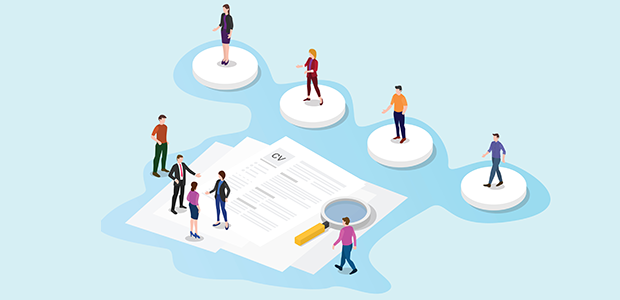
How can the recruitment sector use AI to its advantage?
In its exponential rise, artificial intelligence has already proven it can streamline business processes, improve operational efficiencies, and help cut costs. In fact, 68% of large companies have already adopted at least one AI application, followed by 34% of medium sized companies and 15% of SMEs.
The rise of generative technology in recent months, however, and the lack of regulation over its development and uses has started to raise serious concern; even from those responsible for pioneering the technology.
Geoffrey Hinton, the so-called ‘Godfather of AI’, recently voiced his concerns about the fluidity and unpredictability of AI’s evolution. This followed similar calls from Elon Musk to pause the research of AI until better regulation comes into force.
These concerns, however, relate to more powerful AI systems than those currently used in most businesses. And while regulation of AI is certainly needed – and quickly – the adoption curve in industries such as recruitment is having major benefits on the sector, which shouldn’t be ignored.
How can the recruitment sector embrace AI?
One of the biggest benefits of AI – and possibly most popular - in the recruitment sector is its ability to eliminate human biases while filtering through applications, which hiring managers and recruiters may not even be aware of. This application has allowed businesses to improve their D&I strategies and it will continue to be one of AI’s most prominent and important use cases within recruitment.
But there are hugely creative applications of AI cropping up all the time. For example, artificial intelligence is being used during the interview process to analyse the speech patterns, facial expressions, and body language of potential candidates, before marrying these patterns about a candidate to form predictions as to which interviewee will be most successful in a certain role.
Elsewhere, recruiters are also making the most of chatbots to provide candidates with real-time information and updates on new roles, reducing the amount of time recruiters spend outreaching to candidates, allowing them to focus on finding new roles and building relationships with employers.
Aside from helping to secure external applicants, AI can also be useful when hiring internally. By using existing information from an organisation’s database, such as previous employee assessments, AI can recommend internal “talent” to hiring managers, who benefit from a hugely streamlined internal recruitment process.
Looking ahead
It’s clear AI has the ability to drive efficiencies in the recruitment sector and allow recruiters to focus on the more human aspect of the job: building relationships with hiring managers and candidates.
But, as with any application of AI across any industry, it cannot be left to work alone in silo. Human monitoring is critical to make sure errors are spotted in a timely manner. AI will always only be as good as the data that is fed into it, so if it contains any biases, it can result if potentially offensive outcomes.
For example, a recent US study revealed that algorithms built to detect hate speech online are biased against black people, with certain AI models being 1.5 times more likely to flag tweets written in African American English as hateful or offensive.
Similar biases in the recruitment process could prove hugely damaging for organisations, stressing the importance of human monitoring and management. As such, specialised policy officer roles will become much more prevalent within the recruitment sector as AI and its application within agencies evolves.
Final thoughts
Artificial intelligence won’t change the recruitment sector overnight. But it does have the ability to improve operational efficiencies and processes when used correctly and sensitively, allowing recruiters to do what they do best – be human.

